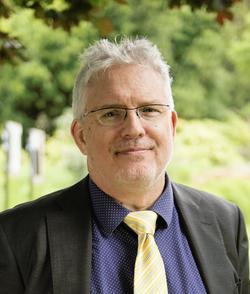Hot Topic Lecture: Professor Stephan Lewandowsky

Professor Lewandowsky’s talk discussed the increase in “post-truth” politicians and “fake news” in the last few years, how this is expressed in the public’s attitudes towards science and what can be done to tackle this.
Professor Lewandowsky introduced his talk by giving statistics by The Washington Post’s fact checker, stating the number of falsehoods or misleading information given by President Donald Trump during his four years as President.
He went on to describe the difference between political misinformation of the past and what is happening now. He explained that in the past, political misinformation was carefully calculated and curated to contest the agreed reality to skew favour towards the politician. Whereas now, certain politicians will argue that nobody knows what reality is so they can say what they want, leading to what Lewandowsky has called an “altered ontology of truth”, with such phrases as “alternative facts” and “truth isn’t truth” being used.
He explained what effect this has on attitudes towards vaccination at an individual level. Statistics he provided showed the more extreme a person’s political views, the less likely they were to accept vaccinations. However culturally sensitive messengers, i.e., someone the individual relates to, can be very effective in changing these extreme views.
Professor Lewandowsky then talked about misinformation and conspiracy theories during pandemics. He explained that misinformation significantly affects people’s behaviour, and exposure to misinformation can reduce intent to get vaccinated by up to 6%. He explained that misinformation is very worrying because even when the myth has been corrected and the person believes that correction, people still act as though it is true. He explained this is because it is difficult cognitively to change a fundamental piece of information in your mind.
Professor Lewandowsky finished by describing what can be done about misinformation. Much like a vaccination, people can be inoculated against misinformation. He explained that it takes two elements; an explicit warning of the threat of misinformation and the refutation of an anticipated argument that then exposes the piece of misinformation. He showed a study that proved people can more easily identify manipulative, misinforming tweets after inoculation against misinformation.
You can watch Professor Lewandowsky’s talk below.
